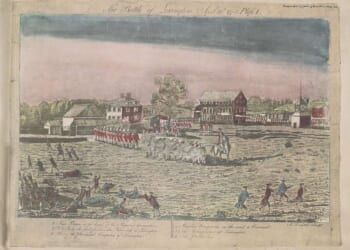Shirley Hazzard once observed that at a certain age memory protects one from the burden of experience. A vivid scene, with the interval of several decades, becomes little more than a word, a gesture, perhaps the way the light fell on a certain afternoon long ago. Here there is no reason, no cause and effect, only a few images that remain fixed in the mind.
My memory is almost at this point with The Great Gatsby, a novel I must have read 10 times in high school and never once since. In those days, Fitzgerald was a revelation to me. I had never considered that such shining brilliance could be so thoroughly suffused with melancholy. The piles of shirts, the eyes of God on the billboard, the green light at the end of the dock—all were powerful images, perhaps a bit melodramatic, that reimagined the old line from Ecclesiastes, vanity is vanity, in a manner peculiarly appealing to a teenaged boy.
Fitzgerald, of course, knew that such contrivances were his special genius, though he overrated their attraction. Upon Gatsby’s publication 100 years ago this month, he expected it to be hailed as a masterpiece. Further, he believed, wrongly, that he had chanced on something new in American letters and at last had written “just the sort of book which the English say Americans can’t write.” When Gatsby flopped, he became bitter and grandiose. “This thing, both the effort and the result,” he wrote to his editor Maxwell Perkins, “have hardened me, and I think now that I’m much better than any of the young Americans without exception.” Maybe that was true at the time. But it didn’t help Fitzgerald: He never wrote another coherent novel after Gatsby.
In fact, nothing Fitzgerald wrote was really complete, or in some cases even finished. This is also true of Gatsby, and I think that fact accounts in part for its somewhat muted centenary. The novel is not so much a story as it is a collection of memorable phrases. (Valley of ashes . . . Owl Eyes . . . boats against the current, etc.) This is as much praise as it is criticism, and some of Fitzgerald’s harshest critics have begrudgingly admired him for his singular talent. Evelyn Waugh, when he was re-reading Fitzgerald’s other major novel, Tender Is the Night, just a few years before his own death, found it remarkable that “one half-tipsy Yank with a typewriter” could write scenes more memorable and true to life than anything he had ever seen on television—a backhanded compliment if there ever was one.
For my own part, the scene in Gatsby that stands out in my own mind has little to do with the novel at all. It’s a throwaway paragraph at the end of the book, an observational passage about the train ride from Union Station in Chicago to the depot in Fitzgerald’s hometown, St. Paul, Minnesota.
When we pulled out into the winter night and the real snow, our snow, began to stretch out beside us and twinkle against the windows, and the dim lights of small Wisconsin stations moved by, a sharp wild brace came suddenly into the air. We drew in deep breaths of it as we walked back from dinner through the cold vestibules, unutterably aware of our identity with this country for one strange hour before we melted indistinguishably into it again.
Subscribe Today
Get daily emails in your inbox
I once took that trip, Chicago to St. Paul, on a deserted train in the middle of deep night. There is no other way to describe it. To be alone, racing through the silent fields with not even the moonlight guiding one’s path, to be between two great cities, is one of the most profoundly American experiences possible. In any case, the passage ends a few paragraphs later with the famous line, which could only be about Fitzgerald himself, being “subtly unadaptable to Eastern life.”
I have often thought that this phrase ought to be put on his headstone. When Fitzgerald died at the age of 44 in 1940, he had nowhere to be buried except for an old family plot at a Catholic cemetery in Rockville, Maryland. This was a strange end for a man who, depressed and frustrated, had abjured the East Coast and its false promises (alas, in favor of false promises elsewhere).
In the decades since his death, Fitzgerald’s final resting place has only become stranger. Rockville was farm country in the middle of the last century. Now it’s a sprawling, extraordinarily messy suburb of Washington, D.C.: My wife and I sometimes joke that it is “the attic of the city.” The place is unfinished, never to be finished, full of all sorts of half-forgotten, wonderful things that don’t quite fit anywhere else—among them, the author of The Great Gatsby.






